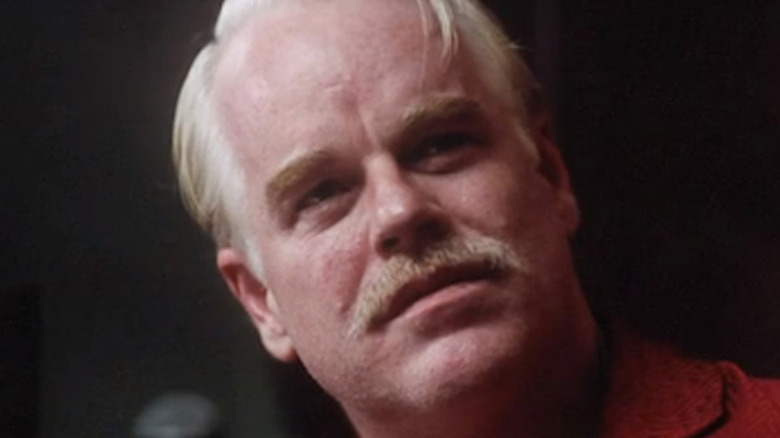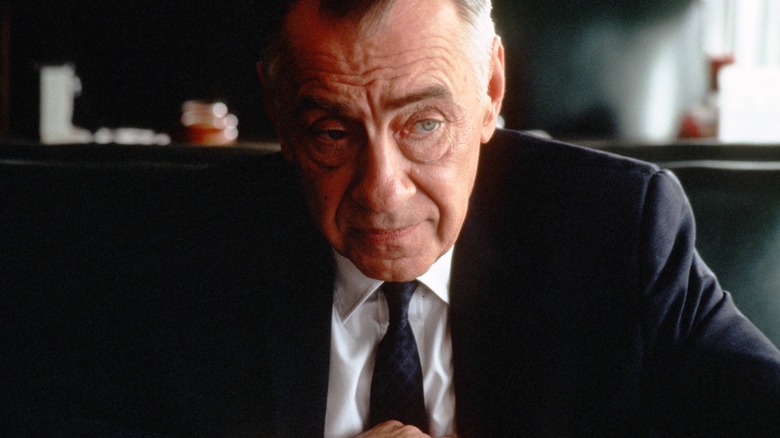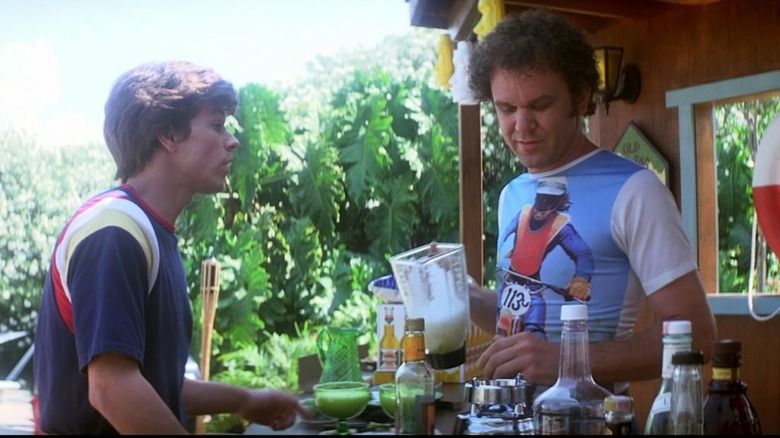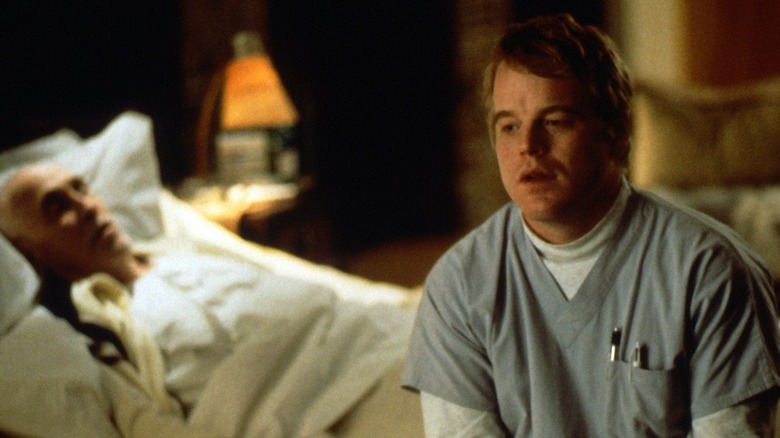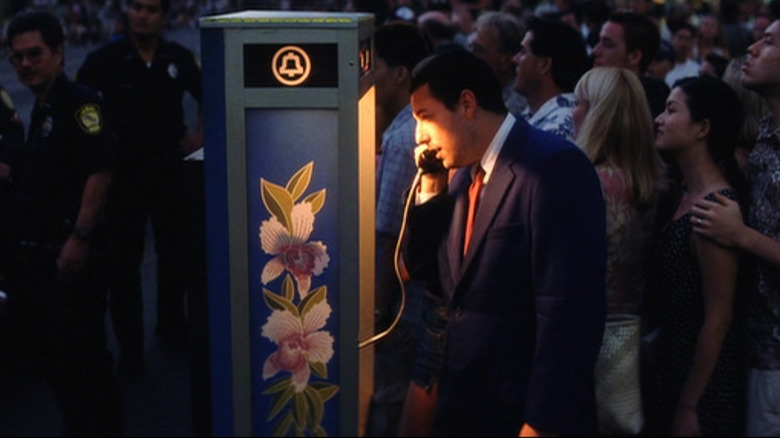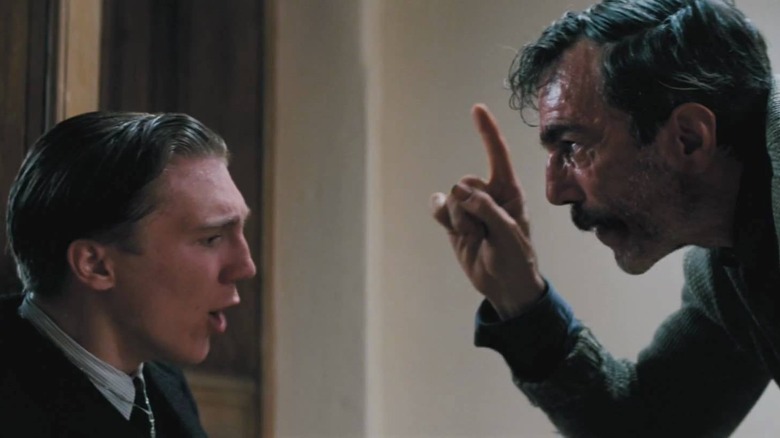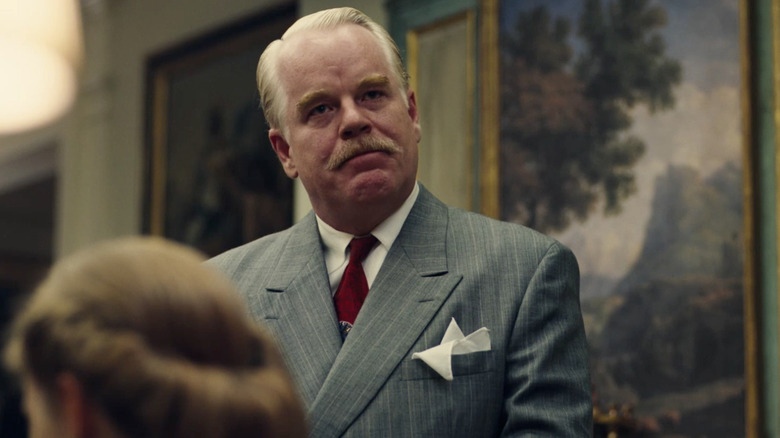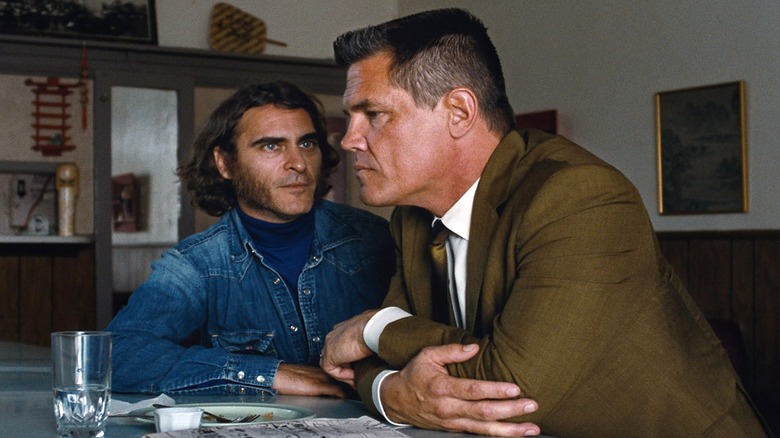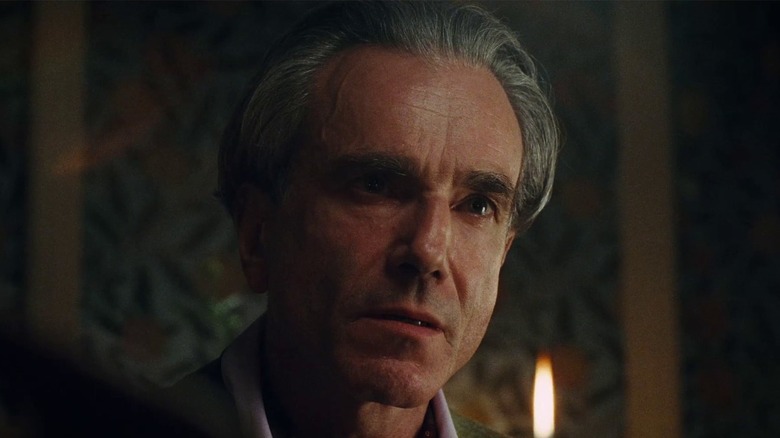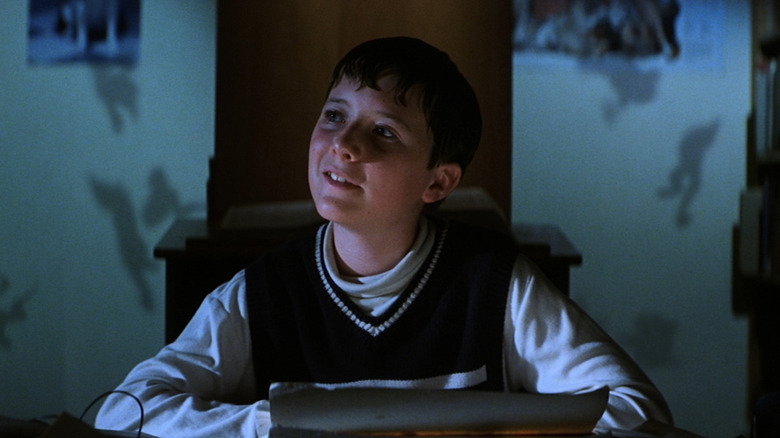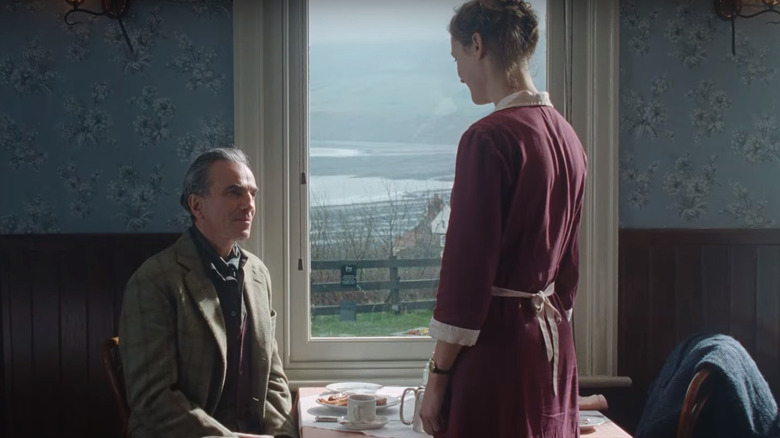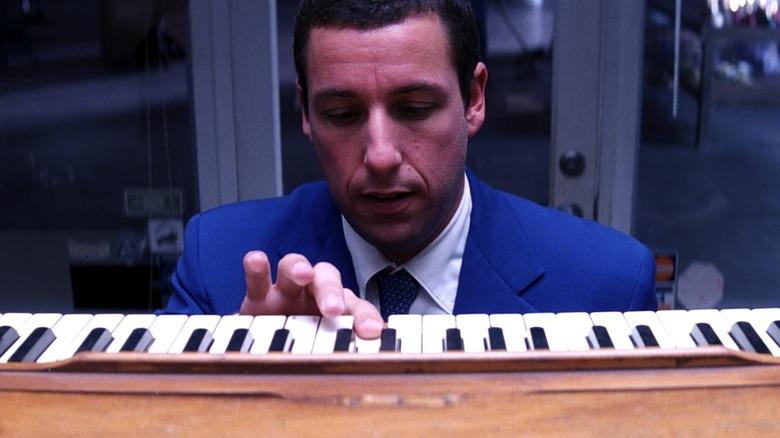The 11 Greatest Paul Thomas Anderson Scenes
Paul Thomas Anderson came out of the '90s indie film boom, which also popularized directors like David O. Russell, Cameron Crowe, the Coen brothers, Gus Van Sant, Quentin Tarantino, Alexander Payne and more. Anderson has always moved at his own pace, with five year gaps between some of his films, andworks on his own terms. He has an ensemble of actors that he has worked with multiple times, including the late Philip Seymour Hoffman, John C. Reilly, Philip Baker Hall, William H. Macy, and Julianne Moore; Joaquin Phoenix and Daniel Day Lewis have both played the lead role in two PTA projects each.
But you don't need to watch an entire movie to see how talented Anderson is as a director. Sometimes, all you need is a single scene. There are three common themes to look out for among this selection of the all-time best Paul Thomas Anderson scenes – mentors and apprentices, musical montages, and food, drink, and parties. Like Robert Altman before him, Anderson is interested in the differences between how humans act when they're alone, how they act when they make a connection with a lover or mentor, and how they act in crowds. Watch these scenes to see what I mean.
Hard Eight — The diner meeting
While it was tempting to choose Philip Seymour Hoffman's cameo in "Hard Eight," I had to go for a two-hander between Philip Baker Hall and John C. Reilly, as their relationship forms the core of this gambling movie. Hall's veteran pro gambler Sydney takes down-on-his-luck drifter John (Reilly) under his wing, and their mentor-apprentice relationship faces many ups-and-downs during the film, some caused by cocktail waitress Clementine (Gwyneth Paltrow) and some by fellow gambler Jimmy (Samuel L. Jackson).
But their initial meeting, during which Sydney picks John up off the ground and buys him a coffee in a diner, lays the groundwork for the adventure to come. John naturally distrusts Sydney's altruistic offer to give him a small amount of money and to teach him how to turn it into a large amount; John warns Sydney that he knows "three types of karate." The contrast of the two actors' energies is what makes this so good. Hall is crisply calm and still, full of self-assurance as he gently dictates what is about to happen. Reilly is all wired nerves, attempting to play it cool while oozing desperation, and looks like he hasn't slept or showered for days.
The witty, quick-fire dialogue, the excellent (in this case, jazzy) score, and the performances that establish these characters and their dynamic so quickly would go on to become Anderson's hallmarks.
Boogie Nights — The pool party
"Boogie Nights" is set in 1977's porn scene and follows the rise and fall of Eddie Adams (Mark Wahlberg), who is taken under the wing of Jack Horner (Burt Reynolds) and turned into successful porn star Dirk Diggler — another mentor-apprentice relationship from Anderson. The large and impressive ensemble cast shines when Eddie visits Horner's house near the start of the film for a pool party, during which a series of long steadicam shots take in a variety of characters and settings.
The fluidity of the camera as it surveys the scene, checking out the different people in hidden corners of the house and gardens, makes the viewer feel like another party guest. The actors featured in this scene include John C. Reilly, Julianne Moore, William H. Macy and Philip Seymour Hoffman — all of whom would all go on to be in PTA's next film, "Magnolia" — as well as Don Cheadle and Luis Guzman. One of the more memorable vignettes is a crowd formed around Little Bill's (Macy) wife as she has sex with another man. Around the same time, Rothchild (Reilly) feels threatened by Eddie and immediately asks him how much he benches and challenges him to a dive-off, which is hilarious. As this scene shows, Anderson is a master at balancing large ensembles and creating richly-drawn characters. Even if their screen time is brief, they still feel fully realized.
Magnolia — Wise Up
Anderson found his magnum opus in the three hour epic "Magnolia," an interweaving series of stories featuring an enormous cast of characters. The zenith is the use of Aimee Mann's "Wise Up," during which isolated characters sing along to the lyrics. In a film about loneliness and a need for connection, this heartbreaking scene sees these broken, desperate people singing a song "together," unaware that they're all fleetingly united. This is not a Broadway-style musical number, and most of the actors do not have great singing voices, but that makes it all the more relatable.
A highlight of the sequence is when the camera moves from Julianne Moore's Linda Partridge, alone in her rain-drenched car, to Cruise's Frank T.J. Mackey, alone in his — these two characters are unaware that they're connected by Jason Robard's Earl Partridge. Philip Seymour Hoffman's nurse Phil singing with Earl is another bittersweet moment; they are the only two characters who aren't physically alone during the montage, but Earl is so drowsy that they're still functionally disconnected. Perhaps the best line among Mann's perfect lyrics is "You're sure, there's a cure" — these seemingly helpless characters still have hope, and continue striving to find something they believe will fix everything.
Punch Drunk Love — He Needs Me
Anderson's pivot from critically-acclaimed arthouse ensemble films to an Adam Sandler movie was not something that anyone saw coming — after all, this was the era of "The Waterboy," "Big Daddy" and "Little Nicky." However, this romantic comedy works because of Sandler's brilliant, anxiety-drenched performance as Barry Egan, a lonely oddball who's trying to get through life while enduring the whims of his seven overbearing sisters. The brilliant Emily Watson plays Lena, the object of Barry's affections, and the chosen scene comes when Barry pursues Lena to Hawaii.
Barry hopes to that he can pay for the trip by using the coupons he collected from pudding cups — he has hundreds of them — but the scheme doesn't work out. Another musical montage follows, but it couldn't be more different from "Wise Up." Anderson took Shelley Duvall and Harry Nilsson's "He Needs Me" from Robert Altman's "Popeye" and had it rearranged by composer Jon Brion, who made it a more lush, orchestral, and romantic piece.
While Barry scours the island, the song plays. Although the visuals suggest that Barry is on a rescue mission to "save" Lena, the lyrics of the song tell the true story — Barry needs Lena a lot more than she needs him. The scene culminates in a great movie kiss.
There Will Be Blood - I drink your milkshake
Anderson takes the mentor-apprentice dynamic that he previously examined in "Hard Eight" and "Boogie Nights" and twists it in "There Will Be Blood," a tale about a bitter rivalry between a younger and older man that lasts for 20 years. Daniel Day-Lewis gives an Oscar-winning performance as Daniel Plainview, a man who only cares about making money through oil, no matter the cost to his fellow man — or even child. Paul Dano (whose performance should have been Oscar-winning) is the preacher who clashes with Plainview over the rights to drill on his family's land.
Although the film starts in 1898 and feels like a Western, the climactic scene is set in a bowling alley, which feels more like a set from "Grease 2." The year is 1927 and Plainview has become a Howard Hughes-like figure, holed-up in his Hearst Castle-style mansion and alone with his thoughts. Eli visits to finally offer Plainview what he thinks he wants — the rights to Eli's property — but this turns into a game of rhetorical one-upmanship in which Day-Lewis explodes with a melodramatic meltdown of epic proportions. His indelible line, "I drink your milkshake!" has become iconic — and for good reason.
The Master — Pigf**k
"The Master" places Joaquin Phoenix and Philip Seymour Hoffman in Anderson's signature mentor-apprentice relationship. Hoffman plays Lancaster Dodd, the leader of a cult who believes in hypnosis and past lives. Phoenix plays Freddie Quell, a lost soul who is drawn to this unconventional father figure. The scene in question takes place at a fancy cocktail party, and it is hard to believe that Hoffman is the same actor who we saw sweating in an ill-fitting tank-top at the pool party in "Boogie Nights."
An impeccably dressed Dodd, complete with intricately folded pocket-square is "helping" a woman explore her past lives when a man starts repeatedly interjecting, "Excuse me." One of the best things about the scene is the facial expressions of Dodd's wife (Amy Adams), son (a perfectly-cast Jesse Plemons), and Quell (who finds the whole thing hilarious). Hoffman delivers a masterclass in acting (it's interesting to compare this scene to one of Day-Lewis' rants in "There Will Be Blood") as he gets increasingly wound up by this interloper, finally losing it and calling the man a "pigf**k." Freddie throws some food at the man, a stark contrast to Dodd's attempts to win an argument using rhetoric. "The Master" is one of Anderson's most enigmatic but critically-acclaimed films — it is worth seeing in 70mm, if you can.
Inherent Vice — Panukeiku
"Inherent Vice" is a '70s-set neo-noir, and could be Anderson's most impenetrable and divisive film. It has another one of Anderson's typically great ensembles — this one includes Katherine Waterston, Benicio del Toro, Reese Witherspoon, Owen Wilson and Martin Short. Joaquin Phoenix stars as Doc, a private detective who shares several wildly funny scenes with Josh Brolin's Bigfoot, an LAPD detective who is Doc's opposite in every way. Doc is a long-haired hippie. Bigfoot has a '60s buzzcut. One of them lives firmly in the past, while the other is much more with the times.
Two of the characters' funniest shared scenes involve food (a tool Anderson often uses to demonstrate a character's whims and foibles) and, while brief, certainly leave an impression. One is a wordless scene in a shared car, where Bigfoot eats a frozen banana as a horrified Doc looks on, with Phoenix doing some brilliant mugging. Brolin gagging on the banana for a split-second is particularly good.
In the second, they meet in a Japanese coffee shop, where Bigfoot keeps demanding "motto panukeiku" — or "more pancakes" — from a poor unseen chef while, once again, Doc watches in despair. Both of these brief vignettes let us into the depths of Bigfoot's obnoxious personality and reveal why everything about him rubs Doc the wrong way. For a while, "Inherent Vice" was Anderson's funniest film — but then he made the best comedy of the decade in 2017.
Phantom Thread — Asparagus
Picking the best scenes from "Phantom Thread" is by far the biggest challenge of this assignment, as every single thing that Daniel Day-Lewis — who plays '50s fashion designer Reynolds Woodcock — does is utter perfection. Anderson's dialogue is already razor-sharp, but Day-Lewis, as well as Lesley Manville and Vicky Krieps, elevate it even more. Some of the best scenes in the movie revolve around food: Woodcock and Alma's initial meeting over breakfast, an unforgivable interruption with a cup of tea, yet more tense breakfasts with Manville's Cyril, and a fateful mushroom omelet.
But, after extremely difficult deliberation, I've landed on the meal in which Alma dares to cook asparagus for Woodcock, which prompts the immortal lines like, "Right now I'm just admiring my own gallantry for eating it the way you've prepared it," and, "Are you a special agent, sent here to ruin my evening and possibly my entire life?" Woodcock is one of cinema's greatest creations: an awful person in every way, but still utterly compelling. We are invested in his relationship with Alma and care about what happens to the couple while also finding Woodcock absolutely insufferable. It's just impeccable writing. If Day-Lewis was going to win an Oscar for an Anderson film, this should have been the one.
Magnolia — Frogs
The climax of "Magnolia" is really where it wins or loses its audience. The narrator has teased us about coincidences and bizarre occurrences throughout the film, which culminates with a scene that, for some, pushes "Magnolia" into ridiculous and cloying melodrama. Whether you like it or not, though, you can't deny that it's an audacious go-for-broke moment from Anderson.
When the first two frogs hit Jim's (John C. Reilly) car, the audience shares in the character's astonishment. There is a long pause while Jim tries to process what has happened, and then there's a thunderous roar. Thousands more frogs fall from the sky.
At this point, "Magnolia" briefly turns into a horror film — a total bloodbath ensues as the frogs, some of which are still alive, hit the pavement. One of the best shots from the sequence is when the ambulance containing Linda (Julianne Moore) crashes and we get a slow-motion view of her arms being lifted by the sideways momentum. We see Jim help Donnie (William H. Macy), and Rose (Melinda Dillon) help her daughter, Claudia (Melora Walters); the moments of brief connection that appear throughout the film continue right until the end.
Phantom Thread — The Hungry Boy breakfast
The stages of Woodcock and Alma's relationship in "Phantom Thread" can be marked by significant meals. At their first meeting, Woodcock orders a huge breakfast feast at an English coastal hotel. The little details are what make this order so good: "Welsh rarebit, topped with a poached egg — not too runny," "Scones with butter, cream, and jam — not strawberry."
The warning signs regarding Woodcock's fastidiousness and controlling nature already ring loud and clear. If you've seen the film before, you'll be screaming at Alma to run. However, their shy, shared smiles across the bustling restaurant are quite sweet. You can almost read Woodcock's breakfast order as a love letter. When Alma returns with her note — "For the Hungry Boy" — it feels as if her fate is sealed. For Woodcock, she's just another item on the menu.
Punch Drunk Love — Awkward party
After much cajoling over the phone, Barry (Adam Sandler) reluctantly agrees to attend his sister's birthday party, which leads to one of the most awkward scenes in the full-body cringe that is "Punch Drunk Love." As soon as Barry arrives, all seven of his sisters start teasing him about an incident from decades before. In a conversation with his brother-in-law, he says, "Business is very food," not "good." After enduring some more passive-aggressive mumbling, Barry snaps and smashes some windows.
This scene is a brilliant depiction of what it's like to have anxiety and feel like an outsider in your own family. You can only feel for Barry, seeing what he endured growing up and realizing how it made him into the adult he is. The contrast between Barry's sisters and Lena (Emily Watson) isn't subtle, either. "Punch Drunk Love" was Anderson's last Anderson with a contemporary setting — he seems to favor period projects. In a way, that's a shame, because Anderson has a great talent for depicting the modern-day curse of loneliness.
